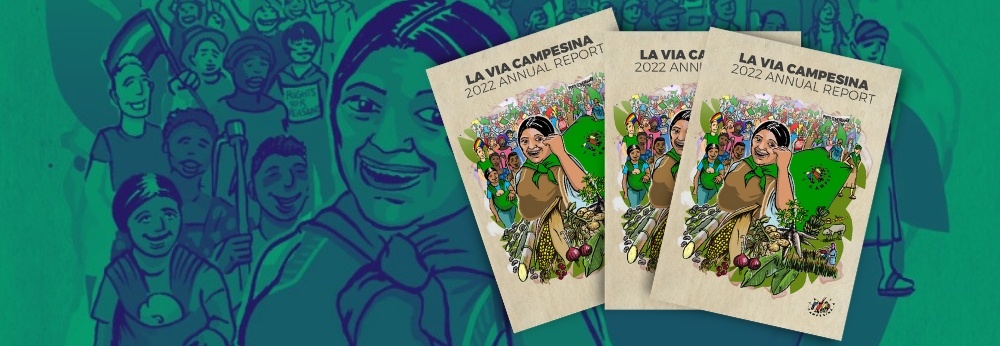30 YEARS OF COLLECTIVE STRUGGLE, HOPE AND SOLIDARITY
The year 2022 marked the 30th anniversary of La Via Campesina (LVC), the international peasant movement. In 1992, during the third Continental Meeting of indigenous, Afro-descendant, and popular resistance in Nicaragua, the seeds of LVC were sown. The collective of a few organizations that gathered there pledged to build an international movement capable of giving voice and resonance to peasants worldwide, united by their rejection of the neoliberal model of rural development and their determination to be included in shaping public policies affecting them. Today, LVC comprises 182 local and national organizations in 81 countries across Africa, Asia, Europe, and the Americas.
Despite ongoing global crises such as hunger, climate change wars, and migration, LVC continues to grow in strength, harvesting major victories such as the recognition of food sovereignty by some countries, support for agroecology from the Food and Agriculture Organisation (FAO), and the adoption of the United Nations Declaration of the Rights of Peasants and Other People working in the Rural Areas (UNDROP) by the UN General Assembly. LVC occupies important multilateral spaces of global food governance to contribute in public policies in support of food sovereignty, agroecology, and popular agrarian reform.
In 2022, LVC voiced strong demands and proposals to address the global crises in the short and long term. The easing of travel restrictions allowed peasant and indigenous leaders to travel to spaces of policy-framing and decision making, to make themselves heard and be counted. The collective efforts took place in all continents and aimed to build a future with food sovereignty and social justice.
In the subsequent pages of this report, we bring to you a comprehensive account of these initiatives and their outcomes. The report will also touch upon several aspects of Movement Strengthening efforts, including the active efforts to build a leadership of peasant women, spaces for deeper debates on gender diversity, and in deepening the practice of peasant feminism at all levels of La Via Campesina.

